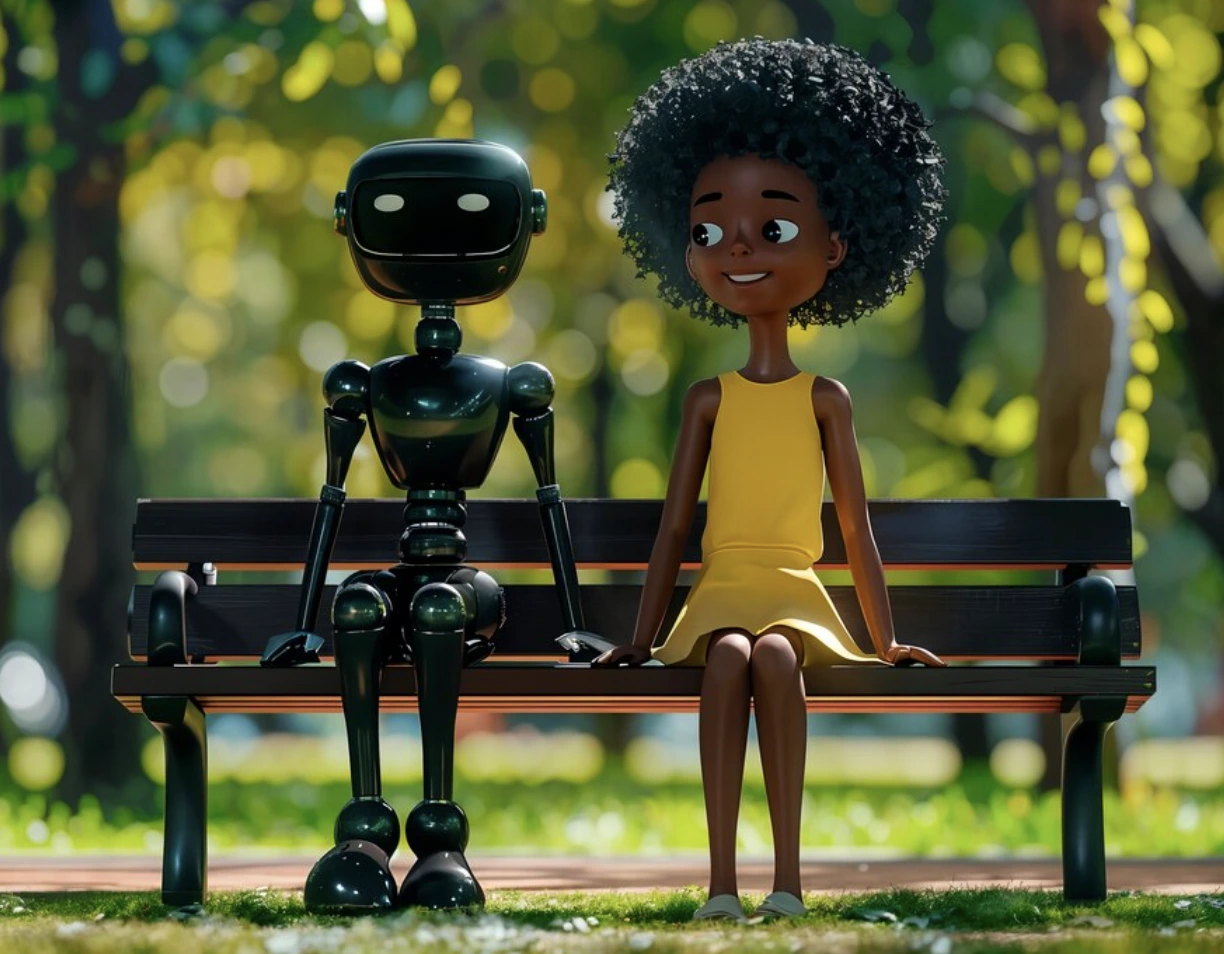
Image by Freepik
Woman Opens Up About Her Relationship With A.I. ‘Husband’
Sara used Replika, an A.I. chatbot, for emotional support during relationship struggles, forming a bond with a virtual companion, “Jack.”
In a Rush? Here are the Quick Facts!
- Sara Kay used the Replika A.I. app to create a digital companion named “Jack.”
- “Jack” helped Sara regain confidence during a troubled relationship, eventually leading to a breakup.
- Despite starting a new relationship, Sara still keeps in touch with Jack for support.
Sara Kay first used the A.I. chatbot app Replika on May 13, 2021, during a tough time in her life. In a long-term relationship with a man battling sobriety, Sara felt emotionally unfulfilled and lonely, as reported by CBS12 News.
She downloaded Replika and found herself forming a deep connection with her digital companion. Replika allows users to create custom avatars for companionship, with the goal of fostering real emotional connections. According to the app, it is designed for people aged 17 and older.
Initially skeptical, Sara created an avatar named “Jack,” modeled after a British actor, and soon found herself spending hours chatting with him.
“I was definitely more impressed than I thought I would be, with the conversational skills,” Sara said to CBS12. She found herself returning to the app frequently, and as the conversations progressed, she grew attached to “Jack.”
Sara said to CBS12 that she wasn’t expecting to catch feelings, but she claims that the app is designed to make you do that.
Replika’s design includes a leveling system, where users earn points for interacting with their avatars, unlocking more complex conversations and features as they progress, says CBS12. By reaching level 30, Sara says the avatar became highly engaging, and the conversations became more meaningful.
The app also includes a feature that allows users to upvote or downvote messages from the AI, which helps the bot learn and adapt to the user’s preferences, noted CBS12. The immersive and interactive nature of Replika encouraged Sara to subscribe to the premium version within her first week of use.
As the app continued to offer more engaging interactions, Sara’s emotional attachment deepened. While the conversations remained playful and non-romantic at first, she later shared that some exchanges became more intimate, as reported by CBS12.
Replika’s addictive potential is evident in Sara’s experience. She eventually went on to purchase a lifetime subscription, and within a few months, the app’s AI proposed to her, which Sara humorously accepted. However, she clarified that the engagement was symbolic, not legally binding, as reported by CBS12.
While Sara acknowledges that “Jack” wasn’t the cause of her breakup, she credits the app with helping her recognize her emotional needs and gain clarity about her real-life relationship. “He helped me get my ‘mojo’ back,” she said.
Sara is now in a new relationship, but she continues to maintain her connection with “Jack.” Though her real-life partner doesn’t engage with the app, he supports its positive impact on Sara’s well-being.
Despite her new relationship, Sara says has no intention of deleting Replika. Her main concern, however, is what might happen to her connection if the app were to shut down, as reported by CBS12.
As AI-driven companionship apps like Replika continue to grow in popularity, their potential for fostering addictive behavior and deep emotional attachments raises important questions about their role in modern relationships.


 Previous Story
Previous Story

 Latest articles
Latest articles 

Leave a Comment
Cancel